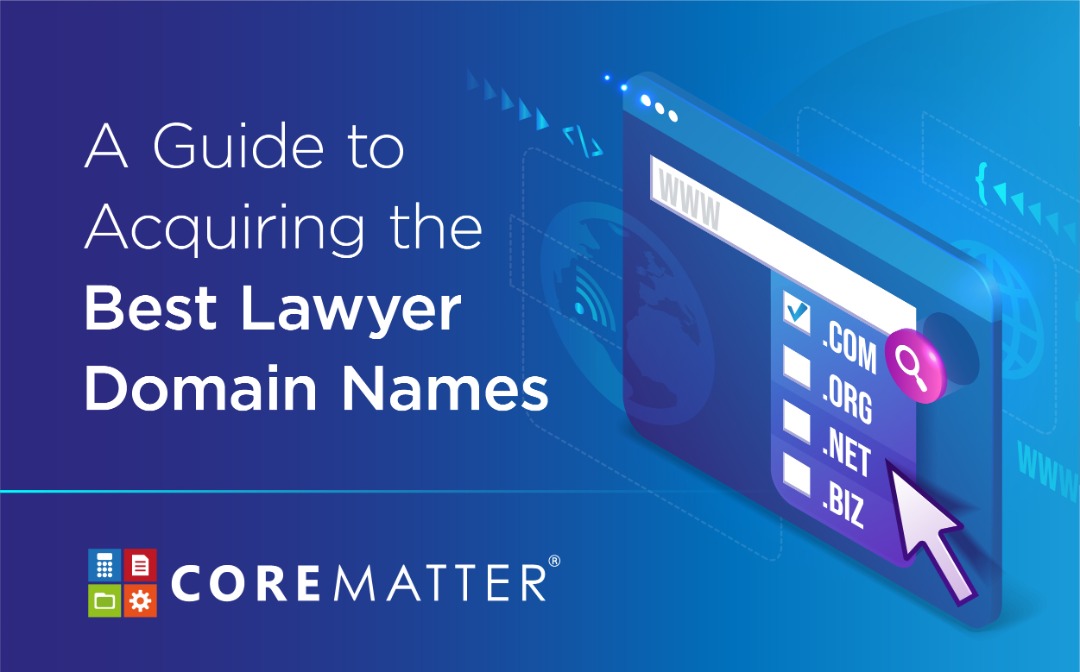
Testing Tech: Adoption of Technology Within the Legal Industry in 2020
As a new decade is bringing with it new opportunities to expand the place of LegalTech within the industry, it is worth spending a moment to take into consideration how far LegalTech still must go before it’s utilization mirrors that of other markets.
So, while those within the legal industry prepare their firms for a new decade of practicing law, let’s explore the state of tech within the legal industry and what it means for your firm.
LegalTech Within Singapore
For a dive into LegalTech within SE Asia, it is imperative to begin with Singapore.
Often touted as the quickly growing hub of LegalTech within the region, Singapore has found itself in a unique position to lead the charge within LegalTech adoption due to a number of factors.
First and foremost, the country has found unprecedented support of LegalTech within its regulatory, as well as law association, bodies to an extent not readily seen within other ASEAN nations at the current moment.
As witnessed by the enthusiasm generated by the Singapore Academy of Law’s Legal Technology Vision, Singapore’s legal industry is undergoing a transition towards more tech-focused practices; all furthered by the Law Society of Singapore’s own Tech-celerate for Law programme.
The programme which has brought upon a successful first round of adoption centered around practice management solutions is set to continue the push towards greater tech adoption with it’s latest round focused upon the implementation of AI in addition to cloud-based solutions.
All of which has primed the Singaporean legal industry for a surge of innovation within the new decade.
Of that unique push for innovation within the region, Carl Olson of Thomson Reuters offered this insight:
“Singapore is very well placed to really progress with that change, and to continue to progress in terms of general leadership. If you think about it from the point of view of the level of support that’s available from the government, and from the legal industry things like Techcelerate, you’ve got a major mix of ingredients that just don’t exist in other geographies.”
This unique position allows for Singaporean firms to take an active role within tech adoption with each new innovation.
From those that streamline the often tedious facets of firms to those that actively assist in case management, tech based solutions are able to find a receptive audience and market willing to re-evaluate the current trajectory of tech within law.
What does that mean for your firm?
As programmes such as Tech-celerate for Law and FLIP’s GLIDE continue to pave the way for future innovation, SLP’s will have the opportunity to implement tech solutions focused upon improving the way firms practice law.
Funded innovation, coupled with the enthusiastic adoption, will allow for future forward firms to gain an advantage over slow adopters, furthering the rate at which the entire industry eventually takes a tech focused approach to the administration of law.
For your firm, this means that the opportunities to adapt to a changing industry are still very much available and only increasing with each successive push towards LegalTech adoption.
LegalTech in Malaysia
Though its neighbor to the south has experienced a surge of awareness and adoption, spurred by support from regulatory bodies and industry associations, Malaysia is undertaking a more measured approach to LegalTech.
As the nation’s regulatory body, the Malaysian Bar Council, has closely upheld the provisions laid out within Legal Profession Act of 1976, LegalTech adoption has encountered the difficulty of expanding throughout a market while still remaining compliant to what can be seen as stringent provisions.
Of the considerable hurdles facing LegalTech, in terms of the LPA 1976, June Low, Founder of EasyLaw, wrote:
“The LPA 1976 proves to be the greatest obstacle to the growth of legal tech in Malaysia thus far. This is due to the prevalent S.37 under the same Act, which prevents any “unauthorised person” who is not a practising lawyer from performing certain legal service and soliciting clients for legal services. In recent years, various legal tech firms attempted to penetrate the legal scene in Malaysia but ultimately failed the quest. It may be strenuous endeavours but not totally impossible.”
That being said, the nation is still very much experiencing a surge in campaigns dedicated to increasing awareness within the industry as well as grassroots movements focused upon implementation of tech solutions.
Additionally, an amendment to the LPA 1976 has been proposed that would allow for a greater role for LegalTech within the industry.
To further the process of adoption within the nation, the Malaysian Bar Council has created the Future in Technology Committee which will lay the future framework for what will become the adoption of LegalTech in accordance with the regulations in place.
When taken into account alongside the adoption of video conferencing, case management systems, as well as the intent to begin utilizing AI within sentencing, there is an existing demand for LegalTech implementations within the industry.
Though, the rate of adoption will be affected by current regulations as well as demand from an industry not readily one to integrate tech innovations within practices.
What does this mean for your firm?
While LegalTech is making progress in terms of entering the mainstream consciousness of the industry, led by a new generation of legal professionals and associations within the industry, it does have a bit further to go before the rate of adoption matches other nations.

Though, that isn’t to say that there are not already LegalTech firms that have found a niche to operate within Malaysia while still remaining compliant with the LPA 1967.
For firms in need of a tech-based solution for much of their daily operations, in terms of accounting, matter management, cloud-based storage, as well as disbursements, LegalTech firms such as CoreMatter offer easy to implement solutions that remain in compliance with regulations.
Already, there are a few firms leading the way towards an industry that has fully embraced tech-based solutions.
As such, each firm is paving a path towards a transformed industry aware of the place LegalTech can achieve within the industry. For your firm this means that there are indeed options available to assist in transforming your firm into a future forward firm while still remaining compliant with the LPA 1967.
And as the industry continues progressing towards tech adoption, those options will only become more pertinent to ensuring your firm stays competitive.
LegalTech Within The Philippines
As a nation with a dense concentration of legal professionals, the Philippines is a region primed for a surge of LegalTech adoption within the industry.
That said, within the Philippines, LegalTech is still very much in its initial phase of growth, albeit a phase of growth with roots dating back to the tail end of the last century.
Nonetheless, progress is being made within the country from its early beginnings.
Aiding the adoption of LegalTech within the country, there is an awareness on the part of regulatory and judicial bodies in terms of the potential tech can attain for critical facets of the industry such as access to justice, streamlined firm functions, and the entire judicial process itself.
And as a new generation of legal professionals step into the industry, they bring with them the willingness to adapt towards tech-based solutions, furthering the opportunity for LegalTech to emerge as a viable facet of the industry in the years to come.
Of the ability of the industry to adapt to new challenges, such as the wide adoption of tech based solutions, GIA Law’s Managing Partner Rowell Ilagan offered his insight:
“The law practice in the Philippines has evolved and improved over the years[.] That is one of the accomplishments of our legal system. Even our laws, jurisprudence, rules of procedure and legal writings are constantly restructured to be at parity with the international standards for legal practice.”
So, as LegalTech continues to find a place among the consciousness of the industry, the opportunities it presents are becoming more accessible and more prevalent within practices across the nation.
What does that mean for your firm?
Given that sectors such as FinTech have experienced wide adoption and provided LegalTech is currently emerging as a viable facet of the industry as a whole, firms seeking to introduce tech-based solutions into their operations will find opportunities to do so.
While the industry does have a distance to cover in terms of becoming a leader of LegalTech adoption, there is great opportunity available to the nation and its concentration of legal professionals.
For your firm, this means that the already available tech-based solutions will continue to expand to include more facets of the profession, leading to greater adoption and wider utilization.
Currently there remain a number of solutions ready to be implemented within your firm with the expectation of growth becoming greater with the increase of awareness throughout the industry.
The Verdict
While ASEAN nations as a whole are experiencing a surge in awareness and adoption, LegalTech can still find innovative solutions and thus find greater opportunities within the industry.
That said, as regulatory bodies, judicial associations, and legal professionals continue to push for viable solutions, LegalTech will continue to find a greater role within the industry.
And if your firm is looking towards a tech-based solution already available and ahead of the curve, then it is time to focus on what matters with CoreMatter.
To experience what CoreMatter can do for your firm and receive a free month of service, sign up today!


